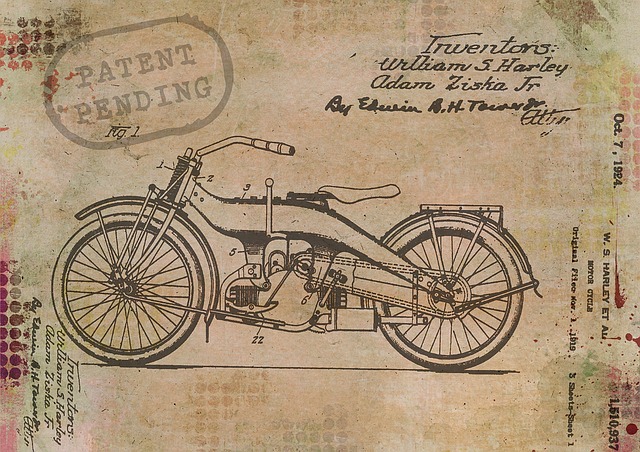This article is written by Kehkasha Sehgal pursuing Diploma in Advanced Contract Drafting, Negotiation and Dispute Resolution offered by LawSikho as a part of her coursework.

Introduction
One of the major influences for the Patent Law in our country is the British Rule and the creation of a law granting certain privileges to inventors.
India while drafting the Patent Law felt the need for promoting innovations as well as keeping in mind the developmental concerns. It was a method for the economic development of the country. However, the earlier sentiment on the issue of patents, especially on pharmaceuticals, is illustrated by an oft-quoted statement made by Indira Gandhi at the World Health Assembly in 1982 [1]:
“The idea of a better-ordered world is one in which medical discoveries will be free of patents and there will be no profiteering from life and death”.
The law of patents came into force via The Patents Act, 1970 and the Patents Rules, 1972 replacing the Indian Patents and Designs Act, 1911.
The dictionary definition of the term “patent” is as follows:
“a government authority or licence conferring a right or title for a set period, especially the sole rightto exclude others from making, using, or selling an invention”
Essentially, a patent is understood as a license which gives the inventor right over an invention and its usage. In India, the law regarding patents and their various parameters is enshrined under the Patents Act, 1970. An inventor of any invention can apply for a patent under the Patents Act, 1970 subject to the qualifications and criteria provided under the Act.
There are various parameters surrounding the use, transfer and assignments of patents as well as the procedural formalities that go along with patenting an invention. In this day and age, it is imperative that an inventor patents his invention in order to protect his creation and reap the benefits of all the hard work put in it.
What is a Patent License Agreement
A Patent License Agreement confers rights of the patent on the Licensee to make, use or sell the particular invention. The terms of the agreement depend on the intention of the parties and the extent of the License on the invention.
Important clauses in a Patent Licensing Agreement
For the sake of understanding, some of the important clauses in a patent licensing agreement are listed herein below [2]
Scope of the License
The scope of the license and the conditions of exercising the rights of the license. Thus, the key terms which ought to be considered shall be the “Licensed Product” and “Usage”.
Exclusivity or non-exclusivity
An exclusive License shall restrict the concerned party whereas a non-exclusive license will allow the concerned person to freely use the patent.
Enforcement of Rights
The clause will provide the responsibility of the party who will be liable for all procedural maintenance and other contractual requirements.
Term of the License
This clause is important as it will prescribe the specific period of use of the concerned patent and expiry of the term shall revert the rights to the original party.
Obligations of the Parties
The clause will individually chart out in detail all the actions and obligations that each party is required to perform under the agreement. It will provide structure to each party and shall be binding on them to fulfil. The agreement should also provide a remedy for non-compliance of the obligations
Further development
The clause shall provide for the framework of any developments, improvements, modifications etc made on the patent in question. It can either restrict such modifications or allow to a specific extent. Depending on the intention of the parties, the extent of any modifications can be captured in this clause so as to avoid any future disputes.
Termination of agreement
The same shall include the mechanism of termination i.e. whether due to material defects or at the behest of a party without cause. It should also prescribe the process of giving notice while executing termination.
Indemnity
The said clause shall help to prevent or compensate for a loss as specified in the agreement.
Royalty
The licensor in exchange for the use of the patent receives periodical or variable fees termed as royalty.

Law on the registration of the agreements
Section 68 of the Patents Act, 1970 specifically provides that the assignment of a patent shall not be valid unless it is put in writing and is duly executed. It further elucidates that assignment of a patent or of a share in a patent, a mortgage, licence or the creation of any other interest in a patent shall not be valid unless the same was in writing and the agreement between the parties concerned is reduced to the form of a document embodying all the terms and conditions governing their rights and obligations and duly executed [3].
The conditions for a license of a patent are thus clear and can be summarized as follows:
- It is to be in writing.
- It must be duly executed
- Document to incorporate all terms and conditions governing the rights and obligations of the parties.
Section 69 of the Patents Act, 1970 prescribes the provisions for registration of assignments, transmissions etc. The same are briefly provided below for ready reference:
- The person who becomes entitled as a licensee or otherwise to any interest in a patent shall be responsible for applying in writing to the Controller for the registration of his title or of notice of his interest. However, the licensor may also apply for the same.
- On receipt of the application, the Controller shall satisfy the proof of title and where that person is entitled to a patent or a share in a patent, register him in the register as a proprietor or co-proprietor of the patent. The Controller shall also enter the particulars of the instrument or event by which he derives title; for instance, the agreement copy; in the register.
- In case the person is entitled to any other interest in the patent, the Controller will enter in the register notice of his interest, with particulars of the instrument, if any, creating it.
- The Controller may refuse to enter the title in the register if there is any dispute between the parties regarding the validity of the transaction pertaining to the patent license. The rights shall have to be determined by a competent court, for the controller to rightly enter the details of the agreement in the register.
- Copies of all agreements, license and other documents evidencing the title to any patent shall be submitted to the Controller.
- The patentee or licensee, in case of a license granted under a patent, may request the Controller to take steps to secure the terms of the license and not disclose the same to anyone unless there is a court order specifically mandating it.
- It is also specified that a Controller will not admit nor the court will admit any evidence of the title of any person to a patent if no entry has been made in the register. However, the Controller or the Court may direct otherwise in certain cases with reasons in writing.
The Government has also issued The Patent Rules, 2003 which provide the procedural aspects of registration of patent license agreements. The same are briefly provided below
- Rule 90 of the Patent Rules, 2003 provides that the application for registration of title and interest in patents shall be made in Form 16. The documents which have to be submitted along with Form 16 are:
- The document giving evidence of transfer of a patent, or
- The document affecting proprietorship,
- or document creating interest, and
- Two copies of the assignment or other document certified to be true copies by the applicant or his agent.
- It may be noted that the Controller may require other proof of title or written consent. [4]
- Rule 92 of the Patent Rules, 2003 prescribes the form in which the Controller shall enter the details in the register.
Relevant Judgments
In the judgment of Sergi Transformer Explosion Prevention Technologies Pvt Ltd. vs. Kumar Pratap Anil and Ors [5]. it was held that under Section 69(5) of the Patents Act, 1970 the validity of the license or assignment agreement as evidence will be recognised only post the registration of the document with the Controller.
Only in the situation where the Controller or Court permits or directs with reasons recorded in writing shall the agreement be considered.
The judgment further elaborates that on a joint reading of the relevant sections there exists no bar to file a suit for infringement by the licensee even if the license agreement is not registered. However, the admittance of the unregistered agreement is only at the behest of the Controller or the Court.
In this specific case, the directions from the Controller or the Court were missing and thus the Delhi High Court held that unless the agreement is registered, the same will not be considered.
Conclusion
Thus, on a reading of the provisions, it is understood that the registration of the license agreement is mandatory but the Courts seem to be taking a view of not granting any relief till the determination of the proceedings of registration at the Patent Office.
Students of Lawsikho courses regularly produce writing assignments and work on practical exercises as a part of their coursework and develop themselves in real-life practical skill.
References
[1] http://shodhganga.inflibnet.ac.in/bitstream/10603/137841/9/09_chapter%202.pdf
[2] https://blog.ipleaders.in/ip-licensing-agreements/
[3] Section 68 of the Patents Act, 1970
[4] Rule 91 of the Patent Rules, 2003
[5] I.A. No.16042/2010 in CS(OS) No.1610/2010
 Serato DJ Crack 2025Serato DJ PRO Crack
Serato DJ Crack 2025Serato DJ PRO Crack









 Allow notifications
Allow notifications


